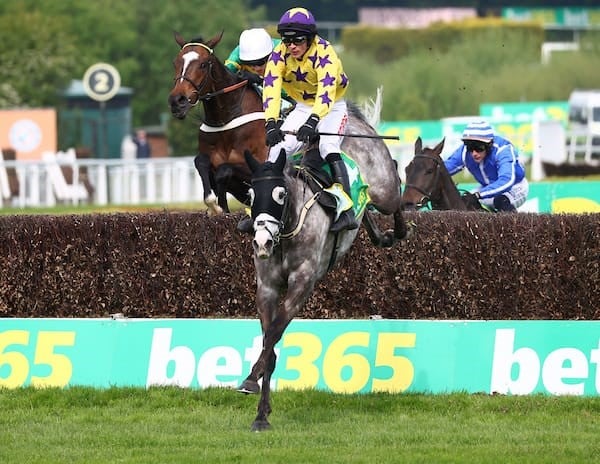The SO turns to me and says ‘Are we having fun yet ?’. I stare at him incredulously for a second and then we both burst out laughing. It’s the kind of shaky, desperate laughter that verges on the edge of hysteria and threatens to dissolve into tears at any second.
We’re sitting in the car outside Drakenstein hospital at the end of a long day spent with a colicking horse. They say that caring for horses is both an art and a science. They forget to mention that horses like to change the rules every now and then. My lovely Iffy, who spent 2 seasons in training and seemed to thrive on it, suddenly chose to be delicate. Taking exception to the change in temperature, she stopped drinking the way she should, got a little dehydrated and her plumbing got a bit backed up. Well, more than a bit as it turned out.
Big and intimidating though they might be, horses are actually pretty vulnerable creatures. One of the most common causes of ‘premature death’ among domestic horses as Wikipedia quaintly puts it is colic (which is sort of a blanket name to cover a wide range of gastrointestinal conditions).
Anatomy 101
Food travels from a horse’s mouth to their stomach via the oesophagus. Connecting the oesophagus to the stomach is a rather well-developed muscular ring called the cardiac sphincter. This uniquely well-developed muscular ring, combined with the angle at which the oesophagus connects to the stomach means that horses are uniquely unable to throw up. Which is not as much of a bonus as it sounds !
Horses have small stomachs with a capacity of around 15l (although the stomach operates most efficiently at about half that amount) and beyond that, the digestion system consists of around 30m of intestine. All designed for one-way traffic. So as the joke goes, all those R100 bills literally do go in one way and straight out the other! In this case, my R100 bills were a bit stuck. And my filly was not happy.
Colic
Any blockage or obstruction is a major cause for concern because pressure can build up enough to rupture the guts, so it is imperative that one gets it all moving again as quickly as possible. When horses have tummy aches, they will usually lie down and try to roll. If they are in extreme pain, the rolling can get quite violent and the accepted wisdom is that rolling may cause the gut to twist, so it is best avoided if possible. Which is great in theory, but somewhat less so in practice.
I was told that the first day is usually the worst so I spent the first day in her stable with her, watching the waves of pain roll over her again and again. Getting up, lying down, kicking, rolling or simply stretched out quietly when the worst of it hit. Witnessing an animal in pain is an upsetting sight. To watch a horse, which is all about speed and efficiency, debilitated and in pain just seems to go against the laws of the universe somehow. I once read a theory that carnivores are designed to cope with pain – their lives are violent and hard and injuries are more or less par for the course. Grazing animals are not built for hardship. They don’t need to be. Any serious injuries are dealt with fairly swiftly.
Team Effort
The SO arrived a bit later with a drink and a soggy sandwich and joined the vigil. By the end of it, we were utterly both worn out. Are we having fun yet? I wasn’t so sure.
It took four days, more IV drips and stomach tubes than I could count and an enviable amount of pain medication. Four anxious days. Of staring at my horse’s back end in the anxious hope that some of what the vets humorously called ‘rewards’ might appear. Mink and manure, eh? Well it was pretty clear which end we were at ! Ah yes, the glamour and romance of horse ownership!
Fortunately the excellent veterinary staff at Drakenstein did get it all moving again and I am delighted to say that she is ‘rewarding’ us regularly now. The euphoria of those first normal piles that we collected triumphantly into a box would be difficult to explain to a non-horse person.
The good bits
Luckily, the coin has two sides and there are some good bits too. Being able to take my horse home again was good.
Horse ownership is not something one does remotely or cleanly. It’s a hands-on business. For best results, you need to dive in and get your hands dirty. And that I think is pretty good. Carrying buckets and feedbags around gets you fit and strong. Just going to gallops gets you into a pair of wellies and out into the fresh air and walking around a bit. They even say that stroking an animal is good for your health because it reportedly lowers blood pressure.
Horses make things difficult and uncomfortable and disappointing and remind us that life is hard, but challenges are good, that good times are rare and should be enjoyed and treasured as much as possible.
Horses are also not something you can do in isolation – one seems to collect a hoard of helpers, trainers, advisers and other supporters and hangers-on along the way. Horses force you to meet people and make friends. They even give you a whole new vocabulary. That is good too.
And Sunday morning found me, along with some friends, and some horses, on Noordhoek beach, watching Mike Stewart’s string brave the freezing Atlantic. There was a cold front rolling in across the bay painting the sky a dull and menacing grey. And then the sun rose up behind the hills lighting up the horses and turning the wet sand into a mirror so that the horses’ reflections danced along with them across the beach.
And our little group on the beach laughed and pointed and delighted in the good fortune of being in just the right place at just the right time to experience it all. What luck!
Luck
I believe it was Gary Player who coined the phrase ‘the harder I work, the luckier I get’ and of course there are bits of horses and racing that can be quantified and measured and managed to a degree, but most of it cannot. And I think that’s why horses and racing are so intertwined with the ideas of luck and fortune and accident and what makes them so appealing. Statisticians can analyse facts and figures and estimate Merit Ratings and bookies can do their calculations and offer betting odds, but every time we toss that coin our chances remain exactly 50/50. Because we are dealing with so many variables that despite the best planning, so many things can (and usually do) go wrong. And on those magical days when the plans work and it all comes together, one feels less a sense of achievement than a feeling of great good fortune. Lady Luck smiles rarely, but there is nothing quite like that warmth on your face.
I think that’s why racing folk can be so superstitious. Don’t wear green, don’t say ‘good luck’, always keep a grey horse in your stable. Jockeys have lucky socks, trainers have lucky shirts or ties, owners and punters have all manner of talismans and rituals to stave off misfortune.
And why not? It’s supposed to be fun. It’s supposed to be frivolous. And entertaining and escapist. And all about the power and beauty of the horse.
And on mornings like Sunday, it is.
Are we having fun yet ? Oh yes indeed !








